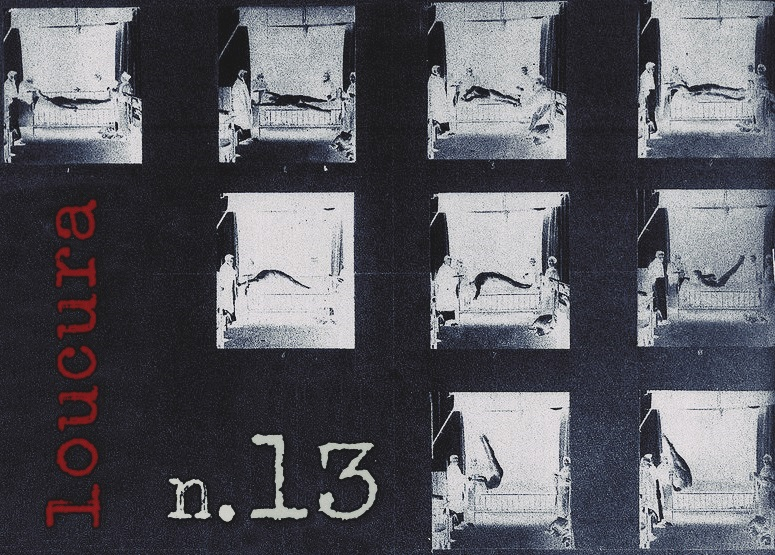No RULE OR BRAKES - Madness and creation in romantic discussion around the genius
DOI:
https://doi.org/10.11606/issn.1984-1124.v0i13p3-11Keywords:
Genius, Madness, Romanticism, Victor HugoAbstract
The relationship between genius and madness is an ancient tópos but it seems to be particularly outlined by romantic thought. Inspired, ultrasensitive, isolated and visionary, the romantic genius is frequently related to the semantic field of madness. At the same time oracle, prophet and mad, he represents the transgression of the current state of things and the creation of a new world of possibilities and experiences. Accordingly, the aim is to explore in this article some aspects of the connections that entwine genius and madness in the context of the debate about romanticism in early 19th century France and in the book William Shakespeare, by Victor Hugo.
Downloads
References
BALZAC, H. Illusions perdues. Paris: Pocket, 2008 [1a ed. 1837-1843].
BÉNICHOU, P. Romantismes Français I et II. Paris: Gallimard, 2004, 2 v. [1a ed. 1973-1992].
BRISSETTE, P. “Poète malheureux, poète maudit, malédiction littéraire”. COnTEXTES [online], Varia, 2008. Disponível em: <http://contextes.revues.org/1392#ftn46>. Acesso em: 10 jul. 2014.
BROMBERT, V. “Hugo’s ‘William Shakespeare’: The Promontory and the Infinite”. The Hudson Review, New York, v. 34, n. 2, p. 249-257, 1981.
CURTIUS, E. R. “A Loucura Divina dos Poetas”. In: Literatura Europeia e Idade Média Latina. São Paulo: Edusp, 2013 [1a ed. 1957].
DIAZ, J.-L. “Paratopies romantiques”. COnTEXTES [online], n. 13, 2013. Disponível em: <http://contextes.revues.org/5786>. Acesso em: 10 jul. 2014.
HUGO, V. William Shakespeare. Paris: Librairie Internationale, 1864.
________. Hernani. Paris: Librio, 2006 [1a ed. 1830].
JASENAS, E. “La Cohérence d’un texte: ‘William Shakespeare’ de Victor Hugo”. Nineteenth-Century French Studies, Lincoln, v. 20, n. 1/2, p. 85-96, out.-inv. 1991-1992.
LOMBROSO, C. L’Homme de génie. Paris: F. Alcan, 1889 [1a ed. 1864].
MILLET, C. Le Romantisme. Paris: Le Livre de Poche, 2007.
MILNER, M. “Présentation”. Romantisme, Paris, n. 24, p. 3-5, 1979.
RIFFATERRE, M. “La vision hallucinatoire chez Victor Hugo”. MLN, Paris, v. 78, n. 3, p. 225-241, 1963.
RIGOLI, J. Lire le délire. Paris: Fayard, 2001.
TELLIER, V. “Le Discours du fou dans le récit romantique européen”, 2007. Disponível em : <http://vox-poetica.com/sflgc/actes/JE2011/tellier.html>. Acesso em: 10 jul. 2014.
VIGNEST, R. “Le mage et l’histoire: poésie et rédemption dans William Shakespeare de Victor Hugo”. Littérature, Paris, n. 126, p. 18-39, 2002.
Periódicos do século XIX:
Le Conservateur. Paris, Vol. VI, 1820. Disponível em:
<http://gallica.bnf.fr/ark:/12148/cb32747421f/date.r=Le+conservateur>. Acesso em: 10 jul. 2014.
Le Constitutionnel. Disponível em: <http://gallica.bnf.fr/ark:/12148/cb32747578p/date>. Acesso em: 10 jul. 2014.
Downloads
Published
Issue
Section
License
Authors who publish with this journal agree to the following terms:
- Authors retain copyright and grant the journal right of first publication with the work simultaneously licensed under a Creative Commons Attribution License that allows others to share the work with an acknowledgment of the work's authorship and initial publication in this journal.
- Authors can enter into separate, additional contractual arrangements for the non-exclusive distribution of the journal's published version of the work (e.g., post it to an institutional repository or publish it in a book), with an acknowledgment of its initial publication in this journal.
- Authors are permitted and encouraged to post their work online (e.g., in institutional repositories or on their website) before and during the submission process, as it can lead to productive exchanges, as well as earlier and greater citation of published work (See The Effect of Open Access).



